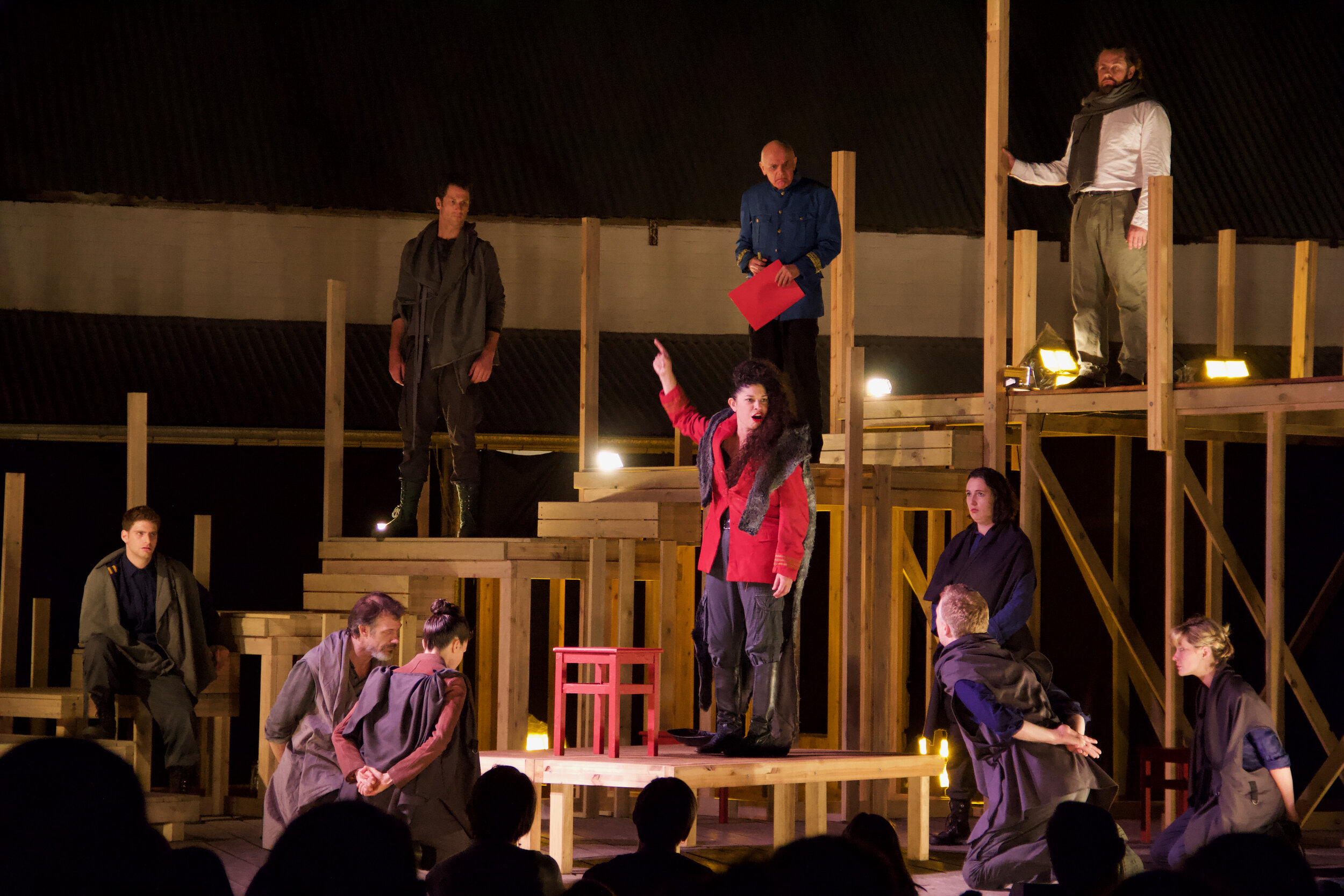
Julius Ceasar
Sport For Jove-Nov 2016 - Jan 17
Director
Michael Pigott
Set & Costume Design
Georgia Hopkins
Sound Design
Bryce Halliday
Lighting Design
Martin Kinnane
Stage Manager
Paisley Williams
Fight Choreography
Scott Witt
Cast: Amy Kersey, Berynn Schwedt, Bryce Youngman, Christopher Stollery, Damien Ryan, Felicity McKay, Georgia Scott, Giles Gartrell-Mills, Megan Drury, Oliver Burton, Rupert Reid, Suzanne Pereira, Teresa Jakovich, Tony Taylor
“Michael Pigott's Julius Caesar is a spare, robust and quick-moving affair based on a respectfully condensed text”.
Sydney Morning Herald- 20th Dec 2016
“Sport for Jove have proven many times that outdoor picnic theatre doesn’t have to be frivolous or shoddy. Here they demonstrate that tinkering with the genders in Shakespeare needn’t distract from the drama’s psychological intensity; it can clarify and refresh it”.
Time Out- 18th Dec 2016
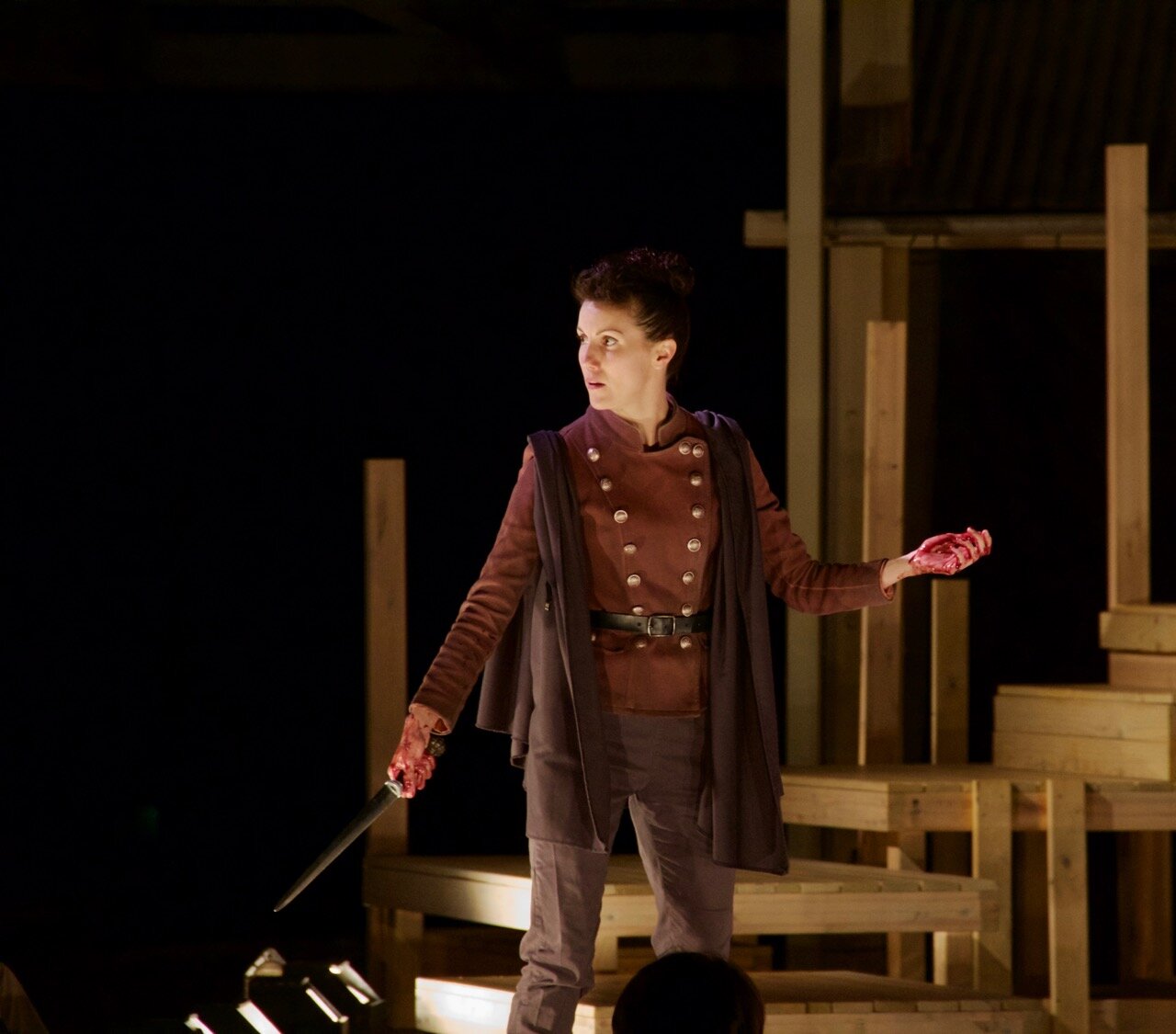
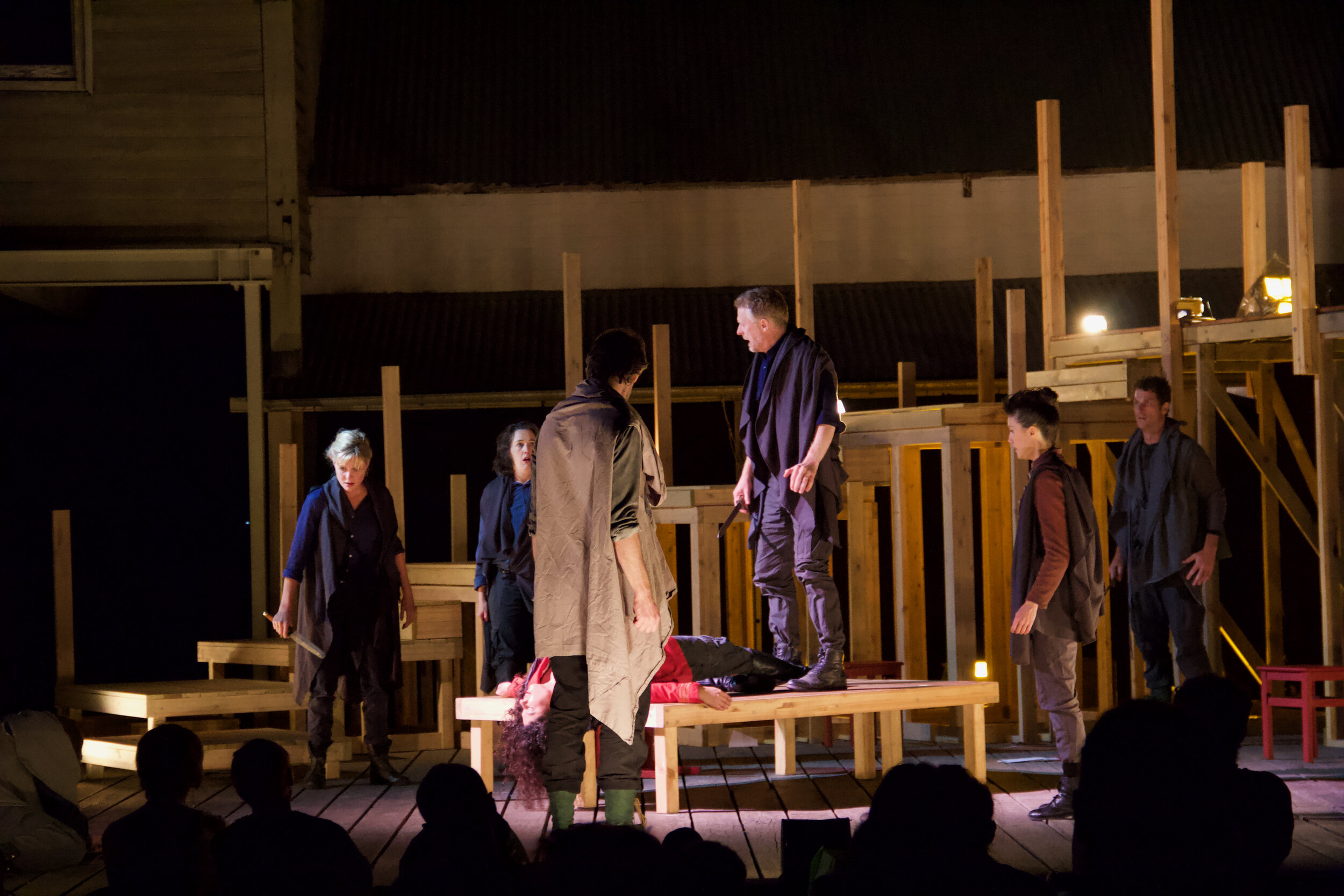
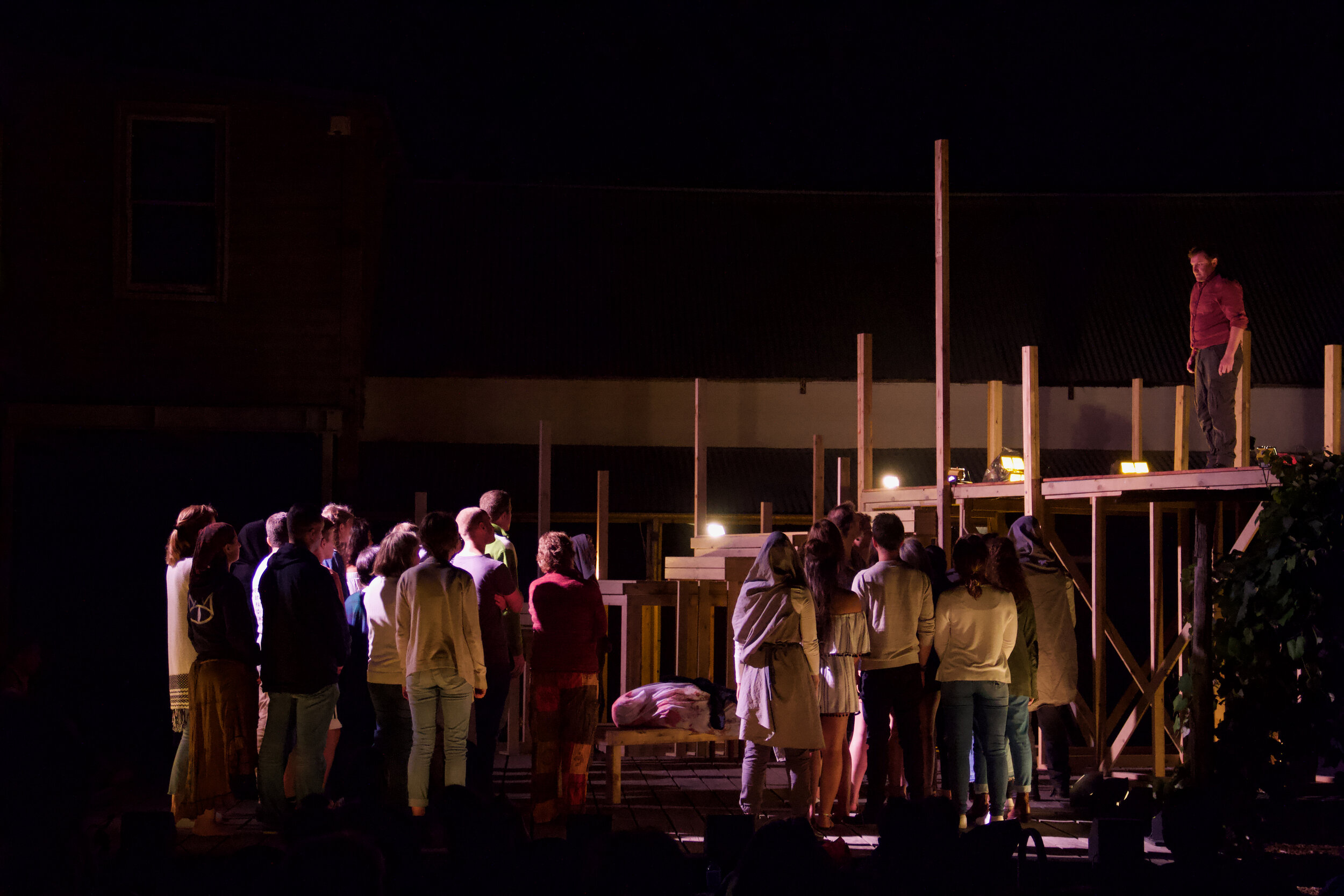
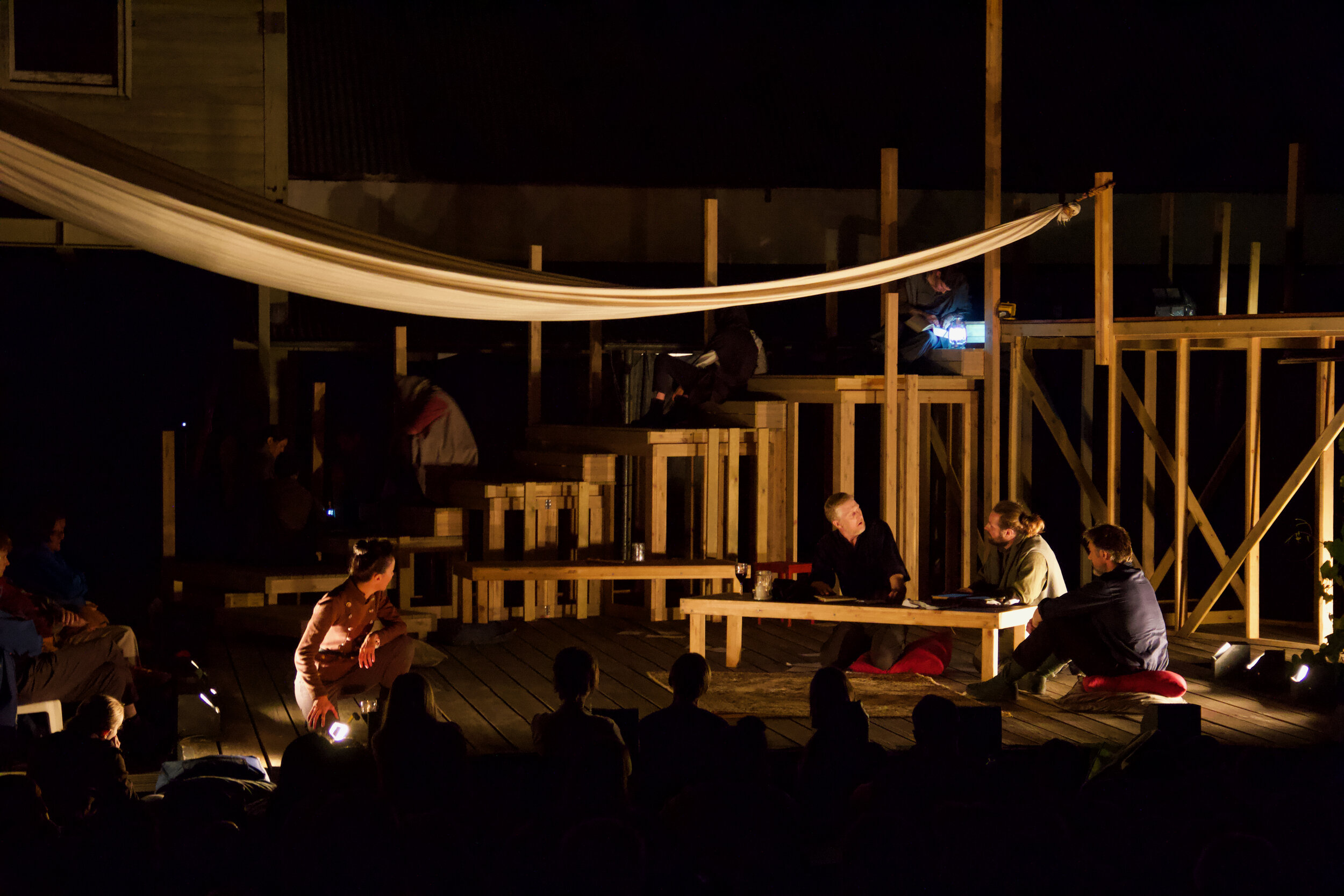
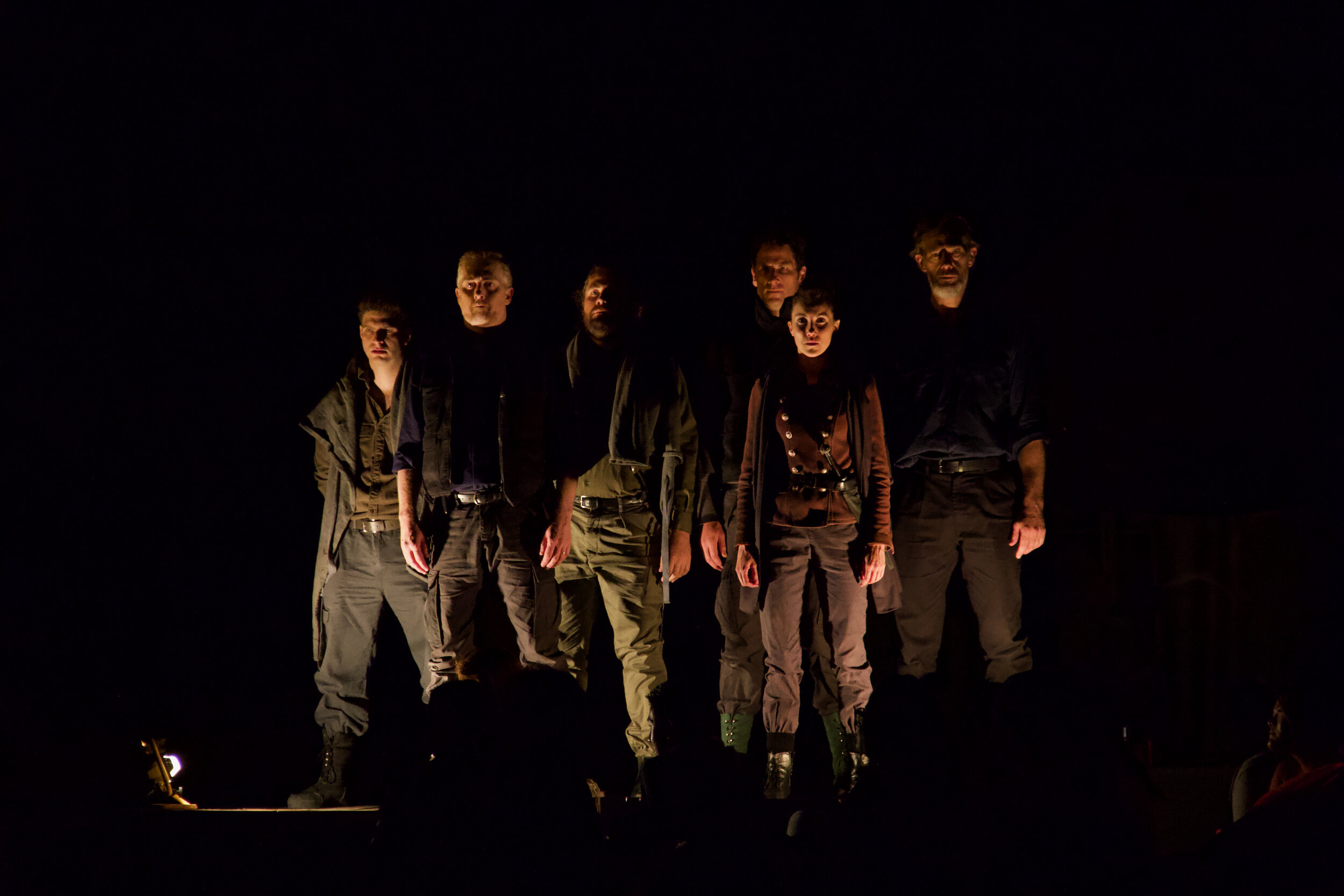
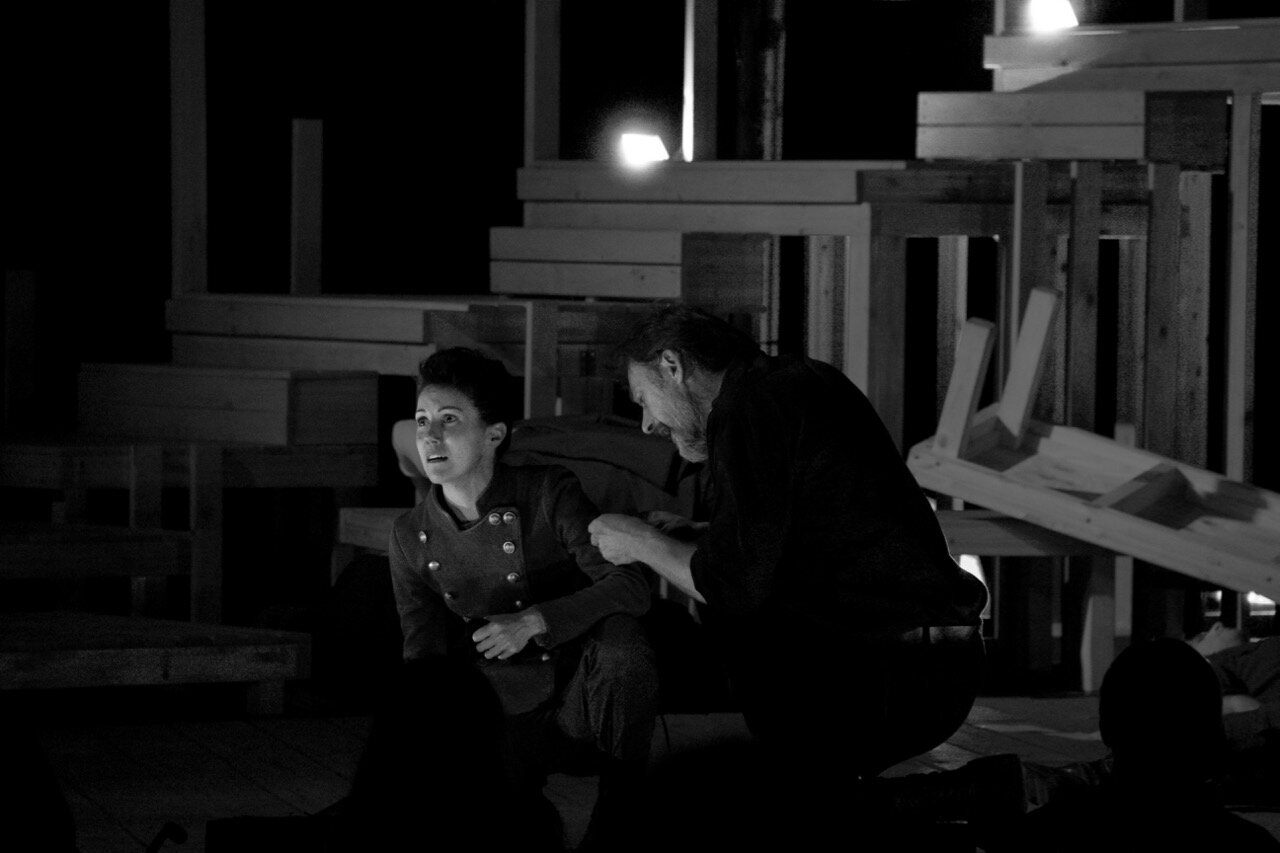
Michael Pigott switches up Shakespeare at Sport for Jove
An excerpt from an article by written by Leisa Woodman for Scenestr Saturday, 10 December 2016
…Far from being a politically correct gimmick, Michael says the decision to cast Caesar as a woman is integral to a contemporary staging.
"These canonical texts that we have, these great texts that we hold up as things that need to be studied, we have to look at a re-examination of them and how they construct gender, and how they play a part in constructing our idea about gender. That sounds like an intellectual exercise but it’s not, it’s about finding the humanity of the characters.
"Suddenly you go, 'why do we assume that some behaviour is male and some behaviour is female'? In this day and age, and particularly when we started rehearsing this, we were going into an election in the United States that we thought was being won by a woman... It is perfectly conceivable for a woman to be in a position of power, not only to be a military general but a dictator in chief of a country."
Michael is adamant that switching the gender of Caesar is simply part of a larger parcel of signals he offers the audience, as a new way of experiencing the text, or even as a way into it for the first time.
Staging choices, he says, act as a guide for the audience in difficult sections.
"All of us nowadays get most of our stimulus visually, and its about rising to that in terms of creating a visual language that exists with the text, and helps us to understand that text. You get these moments that seem… very naturalistic even though they're very heightened."
"The Brexit thing and the US election thing has shown us that crowds that are in a position where things are not stable can be very easily persuaded. All through the play what you see is this mob that starts off in a celebration and then... They just switch back and forth and back and forth depending on who is speaking to them...
"This is what you see at the moment, the whole world over, there is a sense of panic and instability and I think that we capture that in the play. It makes it very exciting. The great thing about the outdoors is that a beautiful thing happens, in that there is no artifice."
This lack of artifice in theatre is precisely why people should make the drive up to Leura, rather than staying home with Netflix.
"[Theatre] becomes important because it is live, it's human beings in front of us, feeling and moving. Once you capture the excitement of that, once you harness the energy of 15 people running around in a field, theatre is more exciting than anything."
Continuing with cyclical patterns, I ask Michael whether he sees this unifying energy as an antidote to the tribalism of the mob. He considers.
"Maybe. There's a beautiful scene in the play where Cinna the poet gets mobbed because he has the same name as one of the conspirators, and I've always seen that role as someone who is trying to spread something in the world that is an antidote and then gets swallowed by that crowd."